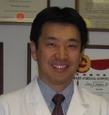Claims about the benefits of Oriental medicine (OM), or traditional Chinese medicine, in the treatment of infertility can be found in early Chinese medical literature dating back 2,000 years. For centuries people have claimed that these treatments were very effective, not only for regulating the menstrual cycle and invigorating the sperm, but to enhance the function of the whole body.
Oriental medicine, which is an ancient comprehensive medical system that includes acupuncture, acupressure, herbs, exercise and nutrition, may be able to raise the fertility potential for both men and women. Philosophically, OM addresses the person as an integral mind/body organism to help adjust the imbalance or deficiency that may prevent conception. Acupuncture itself can be seen as an alternative way of treating fertility problems, but it is also often seen as a complementary therapy to modern fertility treatments.
Calls for greater research on the subject have been more pronounced, of late, and a recent article published in the medical journal Fertility & Sterility reported that researchers from Weill Cornell Medical Center in New York reviewed studies and concluded that acupuncture could have great potential benefits in treating infertility, and called for research in this area stating that “there has yet to be a definitive clinical study.”
Areas where there is reported to be great potential benefits include:
• Increased blood flow to the uterus, which improves the chances of an ovum implanting on the uterine wall
• Reduced anxiety, stress, and the hormones that are secreted during stressful situations that can significantly decrease fertility
• Normalizing hormone and endocrine systems that regulate ovulation, especially in women with polycystic ovarian syndrome (PCOS)
• Positively affect the hypothalamic-pituitary-ovarian axis, which plays a key role in fertility
• Regulate menstrual cycle
Meridian Medical Group, affiliated with New York Weill Cornell Medical Center, runs a highly recognized infertility program in which acupuncture is used to complement Western medicine. The program is based on the theory that infertility results from environmental, social, and psychological stress, as well as disease, and that acupuncture provides benefits unattainable through conventional medicine.
There is a great amount of anecdotal evidence for acupunctures benefits to fertility, including research done at Reproductive Medicine and Fertility Centre in Colorado Springs involving 114 women. Reports showed that 51% of the women who had acupuncture and IVF treatments became pregnant versus only 36% of the women who had IVF alone. Another study reported that acupuncture on the day of embryo transfer (ET) significantly improved the reproductive outcome in infertile women.
The widespread use of acupuncture in treating infertility suggests that there must be benefits.

Post new comment
Please Register or Login to post new comment.